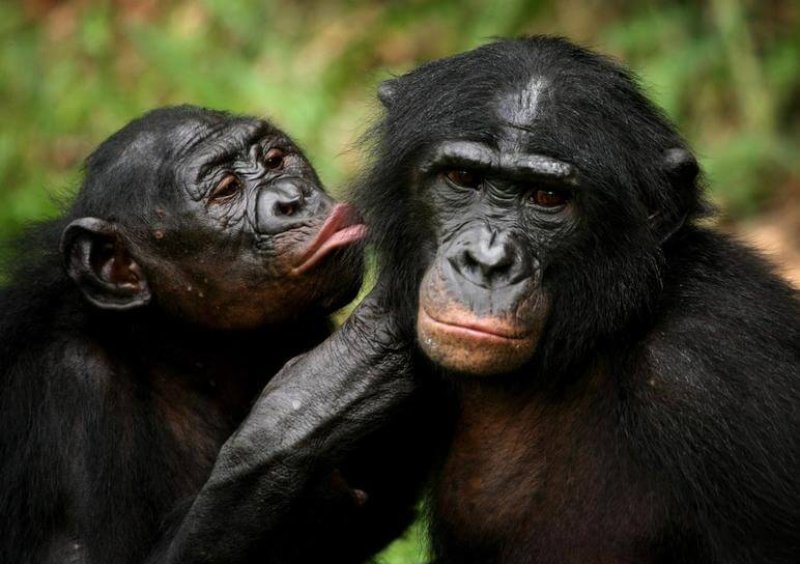Bonobos are a species of primate believed to be humankind’s second-closest living ancestor. That’s intriguing, because zoologists have long observed that these distant cousins of ours are driven by a syrupy mixture of empathy and hedonism, lounging in simian cuddle puddles, caressing one another, kissing with tongue, and engaging in an awe-inspiring variety of bisexual encounters, sometimes with multiple partners, and often while “screaming in pleasure.”
Were we humans to become more like bonobos, militarism and excess aggression could become obsolete, as less authoritarian social structures characteristic of bonobo societies came to predominate.
…
Whether gene hacking ourselves to be as guileless and empathic as bonobos would be ethical, of course, is a different question entirely.
For one thing, the whole hypothetical smacks of eugenics. For another, even though the goal of gene therapy to make humans more like bonobos might nominally be to encourage a more equitable society, the ironic reality is that our actual world is rife with inequality, hierarchies, and unfair institutional arrangements.
In other words, it’d probably be the wealthy and powerful who would seize the treatment for themselves — or, chillingly, foist it on others in order to create a more obedient workforce.































